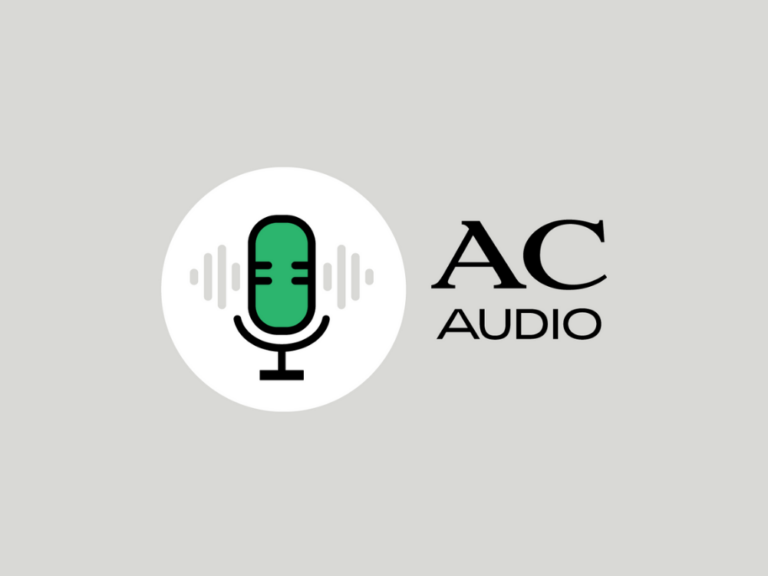
Individual Accountability Framework: Central Bank Enforcement Capabilities
One of the four key pillars of the new Individual Accountability Framework is stronger Central Bank enforcement capabilities.
In this podcast episode, Amelia Walsh and Deirdre O’Mahony discuss what the Central Bank of Ireland will be able to investigate individuals for under the new regime, including breaches of new conduct rules and the new duty of responsibility.
Podcast Transcript
Individual Accountability Framework: Central Bank Enforcement Capabilities
Introduction
Hello and welcome to this Arthur Cox podcast. In this episode, Amelia Walsh, Of Counsel, and Deirdre O’Mahony, Partner from the Litigation, Dispute Resolution and Investigations Group, discuss the new Individual Accountability Framework, one of the most significant changes to financial services regulation in many years. Amelia and Deirdre focus on one of the pillars of the framework, which concerns the Central Bank’s Enforcement Regime. Make sure to follow AC Audio to keep up to date on legal developments from our team.
Amelia Walsh
Hello. I am Amelia Walsh, and I’m Of Counsel in the Arthur Cox Litigation, Dispute Resolution and Investigations Group. Today, I am joined by Deirdre O’Mahony, Partner in the Litigation, Dispute Resolution and Investigations Group, to discuss one of the four key pillars in the new Individual Accountability Framework now that the legislation has been finalised, and that pillar is the proposal to improve upon the Central Bank’s Enforcement Regime. So, in particular, we’re going to focus on some of the practical challenges or questions raised by the proposals which are relevant not only to enforcements against individuals, but also as to how these proposals and the regime will be rolled out in firms. So one of the most critical changes from an enforcement perspective, I think, is the proposal to break this so called participation link. So, Deirdre, can you remind us what this involves and what it will mean from a practical perspective?
Deidre O’Mahony
Sure, thanks, Amelia. So, as things stand, before the Central Bank can sanction an individual, it’s required to prove two things, really. Firstly, that a person is concerned in the management of a regulated firm, and secondly, that they had participated in a breach by the firm before they can sanction that person directly. There are two key changes envisaged on this front. Firstly, the removal of the concept of a person concerned in the management of a regulated firm, and secondly, the breaking of the so called participation link, meaning essentially that where failures occur, where misconduct occurs, the Central Bank can investigate and enforce against individuals performing CF, PCF roles directly and in parallel with firms and from a practical perspective, it will be really interesting to see how that plays out, including, for example, how individual investigations might inform investigations against firms, or even change the course of an investigation against a firm through admissions made, for example, and through evidence gathered, and also whether there’s an uptake in investigations against individuals and the types of issues that might come up in that context and I know that’s something we’ll come back to later on.
Amelia Walsh
Thanks a million, Deirdre. So, what can the Central Bank investigate individuals for under the new regime?
Deidre O’Mahony
So the legislation provides that individuals can be investigated and enforced against – probably two key areas to call out. One is breach of the new conduct rules, and there’s a whole suite of new conduct rules being introduced, both for individuals and for firms, and then for individuals with inherent or allocated responsibility for an aspect of a firm’s affairs, breach of the new duty of responsibility. That new duty of responsibility is essentially the duty to take any steps that are reasonable to take to avoid a contravention by the firm within that person’s sphere of responsibility. So it’s not an unlimited responsibility. A central focus of any investigation around that duty of responsibility will be reasonableness and what steps have been taken by the individual at the relevant time and stepping back from enforcement, it’s obviously very important for firms and individuals to look at that from a compliance perspective or through a compliance lens and that’s something that, in our experience, firms and individuals are already starting to think about what reasonable steps might look like in any given situation, whether that’s business as usual or when particular risks or issues arise and from a firm’s perspective in particular, how can they support individuals and ensure or encourage compliance by having best in class systems? Including around things like delegation and sharing of functions, for example, between individual role holders.
Amelia Walsh
Great. So another question which strikes me is whether the Central Bank will be able to investigate individuals for past breaches under the new regime?
Deidre O’Mahony
Yeah, it’s a really good question because obviously the Central Bank’s enforcement capabilities are being expanded, and our expectation is that in principle, the Central Bank won’t view their investigation powers and their enforcement powers as retrospective in terms of the expanded reach of the new regime. But there is a significant caveat to that and it will be interesting to see Central Bank’s commentary around that in the consultation period and that is where the Central Bank might view the breaches or the conduct as continuing in some way, or where it involves some kind of systems and control breach, which by its very nature involves something that continues until it’s fixed. So I think it’s conceivable that the Central Bank might actually seek to investigate individuals under the new regime in respect of past events or decisions that an individual might view as being in the past, where the view is formed, for example, that either the conduct continued or it involves some kind of systems and control failure.
Amelia Walsh
Brilliant. Thanks, Deirdre. So I guess to move on to another proposal, which is generating quite a bit of discussion, and that’s the proposal regarding the creation of a safe harbour for legally privileged materials. So how is that supposed to work and what are the pitfalls? And I suppose the question is, how safe is that safe harbour going to be?
Deidre O’Mahony
Yeah, really good question again. So, I think time will tell in terms of how safe, safe harbour is, in terms of how it’s expected to work. In summary, it’s a mechanism that allows for the voluntary submission of privileged legal material to the Central Bank without that disclosure amounting to waiver of privilege vis-à vis third parties. Important to call out that in practise, this happens already, so firms have and do enter into limited waiver agreements with the Central Bank so the change under the new regime is that this is being put essentially on a statutory footing. So, it will be interesting to see if more firms, and indeed individuals, avail of that mechanism to disclose privileged material to the Central Bank.
Amelia Walsh
And finally, well, what are your views Deirdre in terms of whether the floodgates are going to open from an enforcement perspective once that new regime is in place? And secondly, I guess what can and should firms be doing now in preparation?
Deidre O’Mahony
Another question I think the answer is that time will tell, but we have thought about this and we’ve looked at the UK experience and I think the expectation is that the floodgates aren’t going to open necessarily and the Central Bank will continue to focus on the more serious and egregious breaches and I think the two key reasons for that are, one, it didn’t happen in the UK. The UK experience would tell us that the regulator will continue to focus on the most serious breaches by an individual and two, all of Central Bank commentary has been focused more on “carrot than stick”, it would seem, and it wanting to encourage good behaviour and not just focus on stopping bad behaviour in terms of practical steps that firms could take. I would really encourage people to watch the video from our colleagues Maeve Clancy and Sarah Thompson, which talks in a bit more detail about the types of things we’re talking to clients about, and clients are doing in preparation for the introduction of the regime. I think from our perspective, one of the key things for firms and individuals to do is to keep an eye on the consultation process with Central Bank and the Central Bank’s implementing regulations where a lot of the practical detail will be worked through and firms and individuals will have an opportunity to contribute.
Amelia Walsh
Brilliant. Thanks, Deirdre. Well, look, thank you so much for joining us here today and for sharing your insights on the fourth pillar of the Central Bank’s Individual Accountability Framework Bill. For those of you watching, thank you for watching and please do not hesitate to reach out to your Arthur Cox team. We would be delighted to help our clients make the process as straightforward as possible. For more information on the framework and on SEAR, please visit our website arthurcox.com/IAF. Thank you.
Podcasts
The Arthur Cox podcast series ‘AC Audio’ is a collection of knowledge and insights across a range of practice areas within the firm. |
 |
 |
 |
Disclaimer: The contents of this podcast are to assist access to information and do not constitute legal or other advice. Specific advice should be sought in relation to specific cases. If you would like more information on this topic, please contact a member of our team or your usual Arthur Cox contact.


